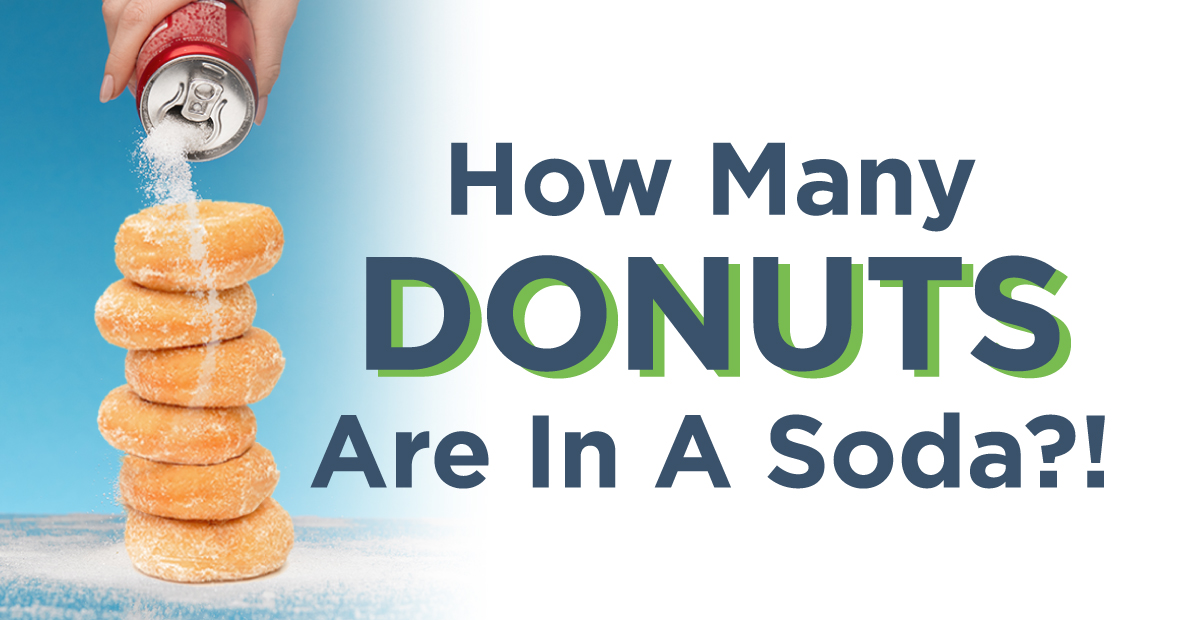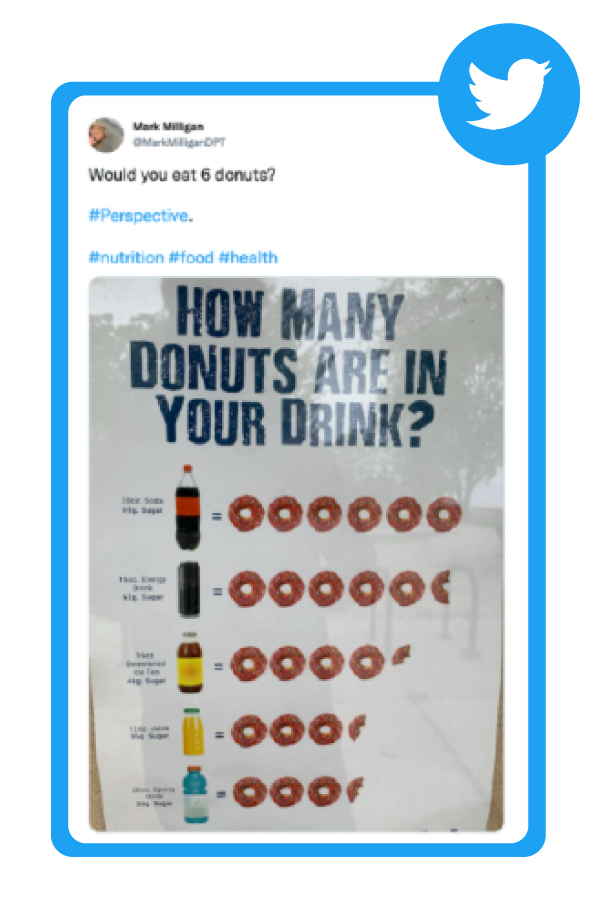
February 16, 2022
 This tweet went viral in May 2019.
This tweet went viral in May 2019.A few years ago, this tweet went viral and people freaked out.
Does one bottle of Coke really contain the same amount of sugar as SIX donuts?
Some quick research on nutrition facts reveals the answer.
One 20oz bottle of Coca-Cola contains 65 grams of sugar. Most donuts contain around 11 grams of sugar. More specifically:
- ? A Krispy Kreme strawberry iced donut = 11 grams of sugar
- ? A Shipley’s chocolate iced donut with sprinkles = 11 grams of sugar
- ? A Dunkin’ Donuts glazed donut = 13 grams of sugar
We’ll use one of the first two examples. If you do the math, six of those donuts would equal 66 grams of sugar, just one gram more than the soda!
To be fair, this message is a bit oversimplfied. Of course, we have to take into consideration factors like calories, saturated fats and nutrient content. One bottle of coke and six donuts are not exactly an equal exchange. Although the graphic is a bit misleading at first glance, it does raise valid health concerns. The message here is not, “You should eat more donuts.” We’re not saying that donuts are healthy. Rather, it is to be aware of how sneaky sugar, especially added sugar, can be.
Food for Thought
Sugar tastes great, we can all acknowledge that. But is the taste worth the consequences? According to both the American Heart Association and The Sugar Association, sugar-sweetened beverages are the leading sources of added sugars in Americans’ diets, 25% being soft drinks specifically. Added sugars are different than natural sugars, and are the type you want to avoid. Naturally occurring sugars are found in foods such as fruit and milk, while added sugars are just that, added, during the preparation process. You can read more about the difference here.
The Dietary Guidelines for Americans caps the recommended daily intake of added sugar at 10%. One of the major downsides of sugar is weight gain, especially belly fat accumulation. Excess sugar causes weight gain, and even obesity, because the simple sugar fructose doesn’t lower the hunger hormone ghrelin or stimulate fullness the same way that glucose, the complex sugar, does. In addition, your liver is the only place in your body that can metabolizes fructose, so the more you ingest in your soda, the higher your risk of developing fatty liver disease.
Too much sugar can also lead to insulin resistance, Type 2 diabetes, tooth decay, high blood pressure and even cancer. This study of more than 100,000 participants found that consumption of sugary drinks was significantly associated with the risk of overall cancer.
On top of all that, studies indicate that sugar may be addictive, as it shares certain characteristics with addictive substances, like dopamine release into the brain. This makes reducing your sugar intake challenging, but not impossible.
The Good News
The first step to cutting back is figuring our how much sugar you’re consuming on a daily basis. These days, food manufacturers are required to include that information on nutrition labels, so it’s easy. Next, consider replacing sugary sodas with naturally sweetened alternatives, like carbonated water, unsweetened tea, coconut water, smoothies, etc.
Keep in mind, managing your sugar intake is only one part of a healthy diet. If you want to learn more about making healthy choices, contact Coryell Health Ideal Protein Health Coach Mardi Mason by calling (254) 404-2556 or emailing weightloss@coryellhealthb.wpengine.com. Next time you want a Coke, we encourage you to think about how many donuts it will cost you.
 Skip to content
Skip to content
